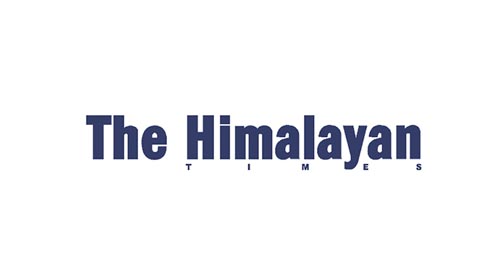Editorial: Open skies for all
As the govt has taken measures to improve the aviation sector, EU should also rethink its ban on Nepali airlines from flying in its skies
The 56th Director Generals of Civil Aviation (DGCA) Conference kicked off on Monday in Kathmandu. The five-day conference is being held here at a time when the 28-member European Union (EU) is still imposing a ban on Nepal’s airlines from flying in its sky citing “poor air safety records” whereas the International Civil Aviation Organisation (ICAO) has already removed Nepal from its Significant Safety Concern list in 2016, saying “Nepal’s aviation sector was safe”. Addressing the conference, Minister for Culture, Tourism and Civil Aviation Yogesh Bhattarai, without naming the EU, urged all to open their skies for all nations in order to address the increasing demand of connectivity for the world over. He said Nepal had adopted an open sky policy, and it believed in the core value of this policy that the sky should be accessible for all so that no nation or people feel isolated. He also reminded the conference that Nepal was making all possible efforts to be an active member of ICAO, making the country’s aviation sector safe, secure, efficient, economically viable and sustainable.
This conference is important for Nepal even as the state-owned Nepal Airlines is facing problems in expanding its business for its two wide-body aircraft up to Europe and East Asia. In order to address the concerns raised by the EU, the government has already decided to separate the country’s Civil Aviation Authority of Nepal (CAAN) into two entities – regulatory body and operational body – as per ICAO’s recommendations. The minister also informed the conference, where around 400 foreign delegates, including EU delegates, are taking part, that a cabinet meeting on Sunday endorsed the proposal to split CAAN into the two bodies. He also promised to improve the air navigation system and develop necessary infrastructure. Removing EU’s ban on Nepali airlines is a must also to make the Gautam Buddha International Airport and Pokhara Regional International Airport fully operational.
One of the major concerns of the European Air Safety Agency (EASA) is non-implementation of the air accident investigation recommendations. A recent report of CAAN has revealed that light aircraft and helicopters were mostly prone to air accidents. However, if we look at the global average air safety records, Nepal has scored 68 points out of 100 whereas ICAO’s minimum standard is 60. In this way, there is no reason for EU to continue with its ban on Nepali airlines from flying in its skies. Europe is a lucrative market for Nepali airlines as most tourists originating from there visit Nepal using foreign airlines. As the Nepal government has already taken a number of corrective measures through policy and administrative reforms in the aviation sector, it is expected that EASA will review its current status on Nepal during its upcoming meeting scheduled for December. Minister Bhattarai and aviation officials should also use this conference as an opportunity to take the EASA delegates into confidence to remove Nepal from its list of poor air safety records. Air safety is not only the concern of the international agencies but also a serious concern of ours. We must be committed to making our airlines more secure and airworthy.
Monitor drugs
It is common knowledge that there is a huge profit margin in the sale of medicines in the country. This is evident from the huge number of pharmacies that dot not only Kathmandu but any town in Nepal. This gives rise to spurious drugs being sold in the pharmacies, where the salesman often doubles as a doctor. In rural Tarai, salesmen make door-to-door visits of homes, prescribing and selling even antibiotics right there and then.
By law, only drugs registered with the Department of Drug Administration, whether imported or manufactured in the country, can be sold. But it is obvious that there is little control over the sale of drugs even in the capital. This is happening because the department is unable to monitor the market regularly for such unscrupulous activities of wholesalers and retailers. According to the department, pharmacies have been found selling dietary supplements, ointments and nutraceuticals, or food containing health-giving additives. The department, in a notice, has warned it would scrap the license of anyone found selling drugs that they were not allowed to. But the wholesalers and retailers will heed the warning only if it is firmly put into action.






